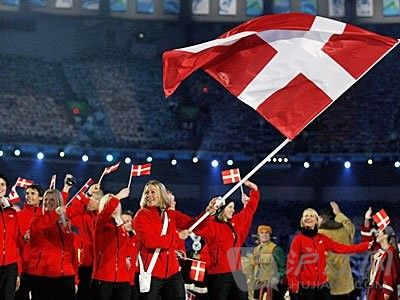|
|
双语:有关幸福你不知道的12个有趣真相(组图)
Everything You Need To Know About Happiness In The World 关于幸福的一切 Unemployment can cause as much unhappiness as bereavement or separation, according to the World Happiness Report, published by Columbia University's Earth Institute and co-edited by Nobel laureate Jeffrey Sachs。 哥伦比亚大学地球研究所和诺贝尔奖获得者杰佛里·萨克斯日前共同发布了世界幸福报告。根据报告显示,失业造成的痛苦与丧失亲友或是分居程度相当。 The report found that the happiest countries in the world are all in Northern Europe with Denmark topping the list。 报告发现,世界上最幸福的国家都在北欧,其中丹麦位居第一。 Meanwhile the least happy countries are in the poor regions of sub-Saharan Africa。 同时,最不幸福的国家位于撒哈拉以南非洲的贫穷地区。 The report looks at how happiness is measured and examines some of its policy implications. We read through the groundbreaking report and pulled the most interesting findings about happiness。 该报告着眼于幸福的测量方式,并测试了一些幸福感的含义。我们通读了这份开创性的报告,并摘录出其中关于幸福最有意思的发现。  The happiest countries The happiest countriesThe happiest countries in the world are all in Northern Europe 世界上最幸福的国家都在北欧 The happiest countries in the world namely Denmark, Norway, Finland, and Netherlands are all in Northern Europe. Their average life evaluation score is 7.6 on a scale from 0 to 10. 世界上最幸福的国家有丹麦、挪威、芬兰和荷兰,这些都是北欧国家。在0-10分范围内,这些国家的平均生活评估得分是7.6分。  The least happy countries The least happy countriesThe least happy countries are all poor countries in Sub-Saharan Africa 最不幸福的国家都是位于撒哈拉以南非洲的贫穷国家 The least happy countries are all poor countries in Sub-Saharan Africa namely Togo, Benin, Central African Republic, and Sierra Leone with average life evaluation scores of 3.4. 最不幸福的国家都是位于撒哈拉以南非洲的贫穷国家,包括多哥(西非国家)、贝宁、中非共和国和塞拉利昂,平均生活评估得分仅有3.4分。  Important things about happiness Important things about happinessBut happiness is measured by more than money. Community, religion, and health play big roles 但是,幸福并不单单用金钱衡量,生活社区、宗教和健康状况也非常重要 The key external factors that determine happiness include income, work, community and governance, and values and religion。 决定幸福的关键外在因素包括:收入、工作、社区和管理、价值观和宗教信仰。 The personal features that determine happiness include mental health, physical health, family experience, education, and gender and age。 决定幸福的个人特质包括:心理健康、生理健康、家庭经历、教育、性别和年龄。 Sometime there is a two-way interaction between the determinant and happiness itself. For instance health affects happiness and conversely happiness affects health。 有时候,这些决定因素和幸福本身之间存在着一种双向互动。比如说健康会影响幸福感,那么反过来,幸福也让你变得更健康。  Income IncomeOf course, Income is always a factor in explaining happiness, but it isn't the most important thing 当然,收入总是说明幸福与否的一个因素,但它不是最重要的指标 In 1974 Richard Easterlin wrote a seminal article which found that richer people are on average happier than poorer people (a cross-sectional fact) but that over time within different societies the population does not on average become happier when they country's income rises (a time-series fact). This came to be known as the Easterlin paradox。 1974年,理查德·伊斯特林写了一篇很有创意的文章,他发现富人通常比穷人幸福些(代表性事实),但是在不同的社会,随着时间流逝,当国家的收入提高时人们并不会随之感到更加幸福(时间序列事实)。这个就是我们熟知的伊斯特林悖论。 Income is not the most important factor in determining happiness。 收入不是决定幸福最重要的因素。 Relative income i.e. income relative to others of the same age, sex, education is the only one that matters when it comes to happiness. Absolute income is not that important。 相对性收入,也就是相对于同年龄、同性别、同教育水平的其他人的收入,这个才影响幸福。绝对收入并不重要。 网友评论
|
||||||||||||||||



